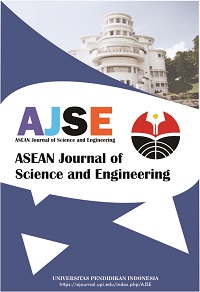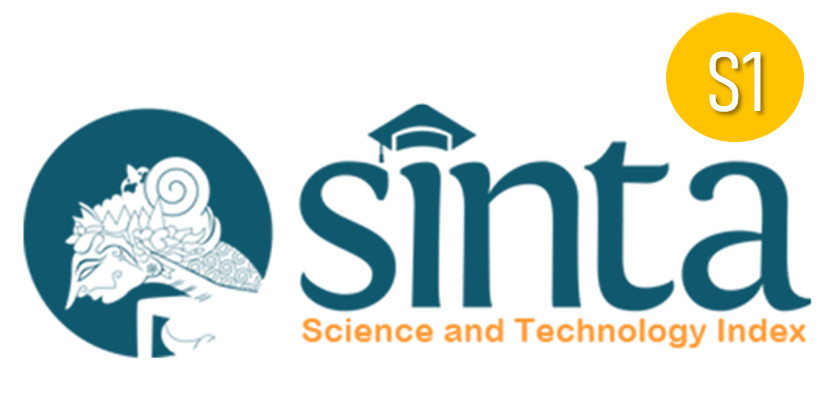Technology-supported Project-based Learning: Trends, Review and Future Research in Science, Technology and Engineering Education
Abstract
Keywords
Full Text:
PDFReferences
Ahmad, S. T., Watrianthos, R., Samala, A. D., Muskhir, M., and Dogara, G. (2023). Project-based learning in vocational education: A bibliometric approach. International Journal of Modern Education and Computer Science, 15(4), 43–56.
Al Husaeni, D. F., Al Husaeni, D. N., Nandiyanto, A. B. D., Rokhman, M., Chalim, S., Chano, J., Obaidi, A. S. M. Al, and Roestamy, M. (2024). How technology can change educational research? Definition, factors for improving quality of education and computational bibliometric analysis. ASEAN Journal of Science and Engineering, 4(2), 127–166.
Al Husaeni, D. F., Al Husaeni, D. N., Ragadhita, R., Bilad, M. R., Al-Obaidi, A. S. M., Abduh, A., and Nandiyanto, A. B. D. (2022). How language and technology can improve student learning quality in engineering? Definition, factors for enhancing students’ comprehension, and computational bibliometric analysis. International Journal of Language Education, 6(4), 445-476.
Al Husaeni, D. F., and Al Husaeni, D. N. (2022). Computational bibliometric analysis of research on science and Islam with VOSviewer: Scopus database in 2012 to 2022. ASEAN Journal of Religion, Education, and Society, 1(1), 39-48.
Al Husaeni, D. F., and Nandiyanto, A. B. D. (2022). Bibliometric using Vosviewer with Publish or Perish (using Google Scholar data): From step-by-step processing for users to the practical examples in the analysis of digital learning articles in pre and post Covid-19. ASEAN Journal of Science and Engineering, 2(1), 19–46.
Al Husaeni, D. F., and Nandiyanto, A. B. D. (2022). Bibliometric computational mapping analysis of publications on mechanical engineering education using VOSviewer. Journal of Engineering Science and Technology, 17(2), 1135-1149.
Al Husaeni, D. N. (2022). Bibliometric analysis of briquette research trends during the covid-19 pandemic. ASEAN Journal for Science and Engineering in Materials, 1(2), 99-106.
Beier, M. E., Kim, M. H., Saterbak, A., Leautaud, V., Bishnoi, S., & Gilberto, J. M. (2019). The effect of authentic project‐based learning on attitudes and career aspirations in STEM. Journal of Research in Science Teaching, 56(1), 3-23.
Fauziah, S. P., Suherman, I., Sya, M. F., Roestamy, M., Abduh, A., and Nandiyanto, A. B. D. (2021). Strategies in language education to improve science student understanding during practicum in laboratory: Review and computational bibliometric analysis. International Journal of Language Education, 5(4), 409-425.
Gülbahar, Y., and Tinmaz, H. (2006). Implementing project-based learning and e-portfolio assessment in an undergraduate course implementing project-based learning and e-portfolio assessment in an undergraduate course. Journal of Research on Technology in Education, 38(3), 309–327.
Guo, P., Saab, N., Post, L. S., and Admiraal, W. (2020). A review of project-based learning in higher education: Student outcomes and measures. International Journal of Educational Research, 102(2019), 101586.
Haatainen, O., and Aksela, M. (2021). Project-based learning in integrated science education: Active teachers’ perceptions and practices. Lumat, 9(1), 149–173.
Han, S., Capraro, R., and Capraro, M. M. (2015). How science, technology, engineering, and mathematics (STEM) project-based learning (PBL) affects high, middle, and low achievers differently: The impact of student factors on achievement. International Journal of Science and Mathematics Education, 13(5), 1089–1113.
Kim, Y. (2021). The problem/project-based learning (PBL/PjBL) at online classes. International Journal of Advanced Culture Technology, 9(1), 162–167.
Kokotsaki, D., Menzies, V., and Wiggins, A. (2016). Project-based learning: A review of the literature. Improving Schools, 19(3), 267–277.
La Prad, J. G., and Hyde, A. M. (2017). IDEAS: A qualitative inquiry into project-based learning. The Qualitative Report, 22(2), 479–498.
Lin, S., Tan, Z., and Guo, W. (2023). A bibliometric analysis of project-based learning research in and outside mainland China. International Journal of Engineering Education, 39(2), 376–396.
Made, D., Srie, A., and Devy, D. (2023). Technology-based project-based learning to teach English in university level: Need analysis. Linguistic, English Education and Art (LEEA) Journal, 6(2), 299–314.
Nandiyanto, A. B. D., Al Husaeni, D. F., and Ragadhita, R. (2023). Bibliometric data analysis of research on resin-based brake-pads from 2012 to 2021 using VOSviewer mapping analysis computations. ASEAN Journal for Science and Engineering in Materials, 2(1), 35-44.
Nandiyanto, A. B. D., and Al Husaeni, D. F. (2021). A bibliometric analysis of materials research in Indonesian journal using VOSviewer. Journal of Engineering Research, 2021, 2307-1877.
Nandiyanto, A. B. D., Ragadhita, R., and Aziz, M. (2023). Involving particle technology in computational fluid dynamics research: A bibliometric analysis. CFD Letters, 15(11), 92-109.
Nandiyanto, A. B. D., Ragadhita, R., Setiyo, M., Al Obaidi, A. S. M., and Hidayat, A. (2023). Particulate matter emission from combustion and non-combustion automotive engine process: review and computational bibliometric analysis on its source, sizes, and health and lung impact. Automotive Experiences, 6(3), 599-623.
Nordin, N. A. H. M. (2022). A bibliometric analysis of computational mapping on publishing teaching science engineering using VOSviewer application and correlation. Indonesian Journal of Teaching in Science, 2(2), 127-138.
Nordin, N. A. H. M. (2022). Correlation between process engineering and special needs from bibliometric analysis perspectives. ASEAN Journal of Community and Special Needs Education, 1(1), 9-16.
Ramdhani, M.R., Kholik, A., Fauziah, S.P., Roestamy, M., Suherman, I., Nandiyanto, A.B.D. (2023). A comprehensive study on biochar production, bibliometric analysis, and collaborative teaching practicum for sustainable development goals (SDGs) in islamic schools. Jurnal Pendidikan Islam, 9(2), 123-144.
Reis, A.C.B., Barbalho, S.C.M., and Zanette, A. C. D. (2017). A bibliometric and classification study of project-based learning in engineering education. Production, 27(Special Issue), 1–16.
Ruzmetov, A., and Ibragimov, A. (2023). Past, current and future trends of salicylic acid and its derivatives: A bibliometric review of papers from the Scopus database published from 2000 to 2021. ASEAN Journal for Science and Engineering in Materials, 2(1), 53-68.
Suherman, I., Fauziah, S. P., Roestamy, M., Bilad, M. R., Abduh, A., and Nandiyanto, A. B. D. (2023). How to improve student understanding in learning science by regulating strategy in language education? Definition, factors for enhancing students’ comprehension, and computational bibliometric review analysis. International Journal of Language Education, 7(3), 527-562.
Tseng, K.-H., Chang, C.-C., Lou, S.-J., and Chen, W.-P. (2013). Attitudes towards science, technology, engineering and mathematics (STEM) in a project-based learning (PjBL) environment. International Journal of Technology and Design Education, 23(1), 87–102.
DOI: https://doi.org/10.17509/ajse.v4i1.67532
Refbacks
- There are currently no refbacks.
Copyright (c) 2024 Universitas Pendidikan Indonesia

This work is licensed under a Creative Commons Attribution-ShareAlike 4.0 International License.












